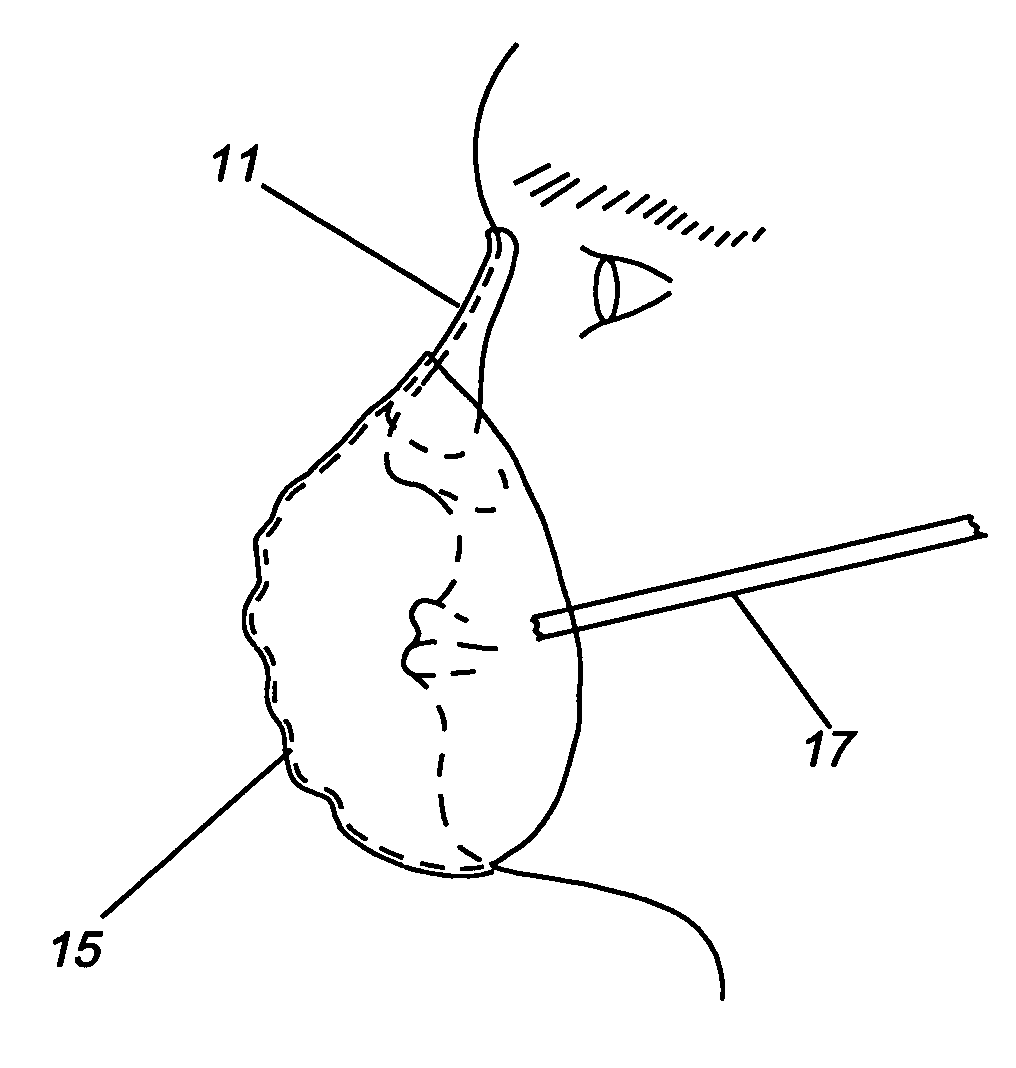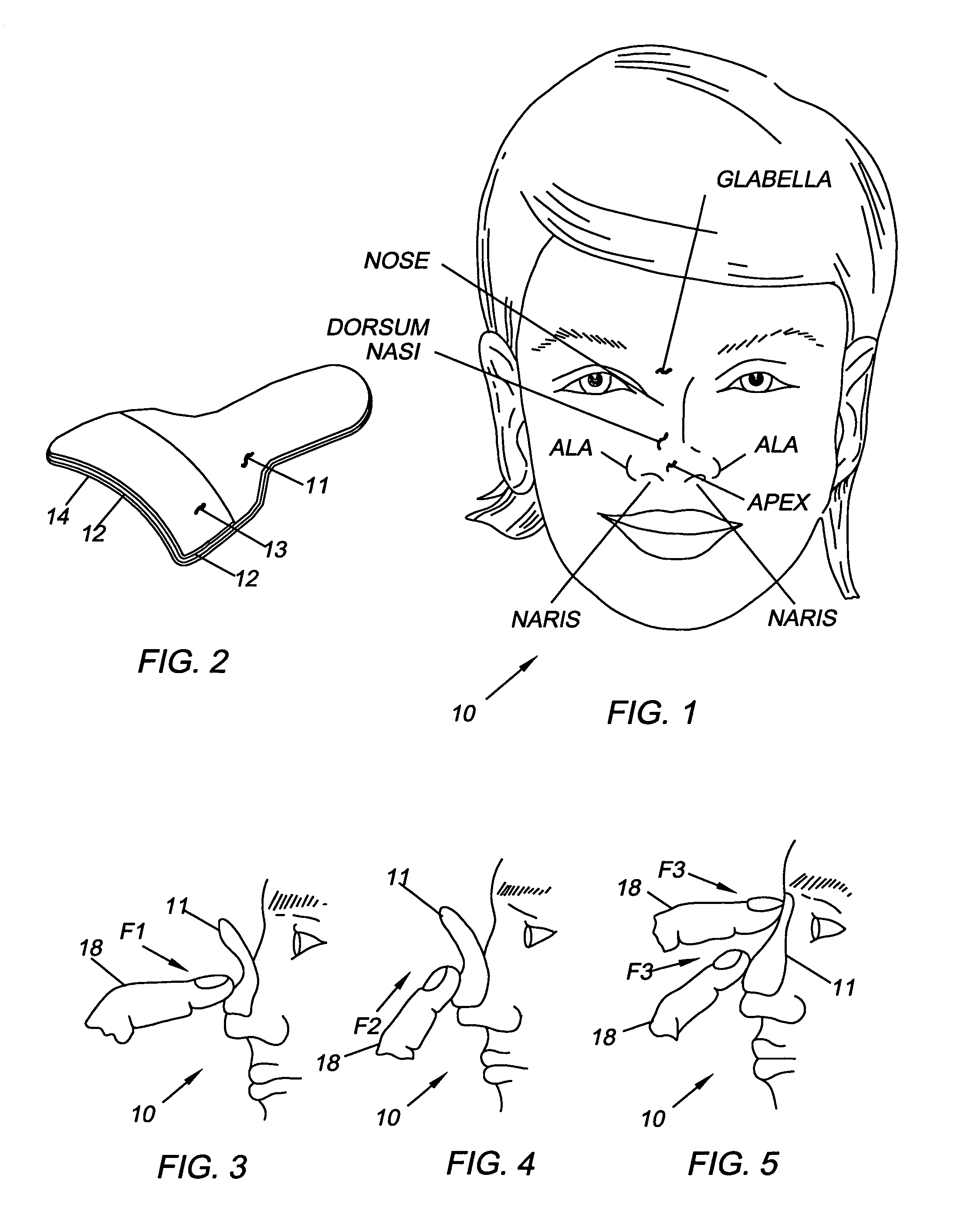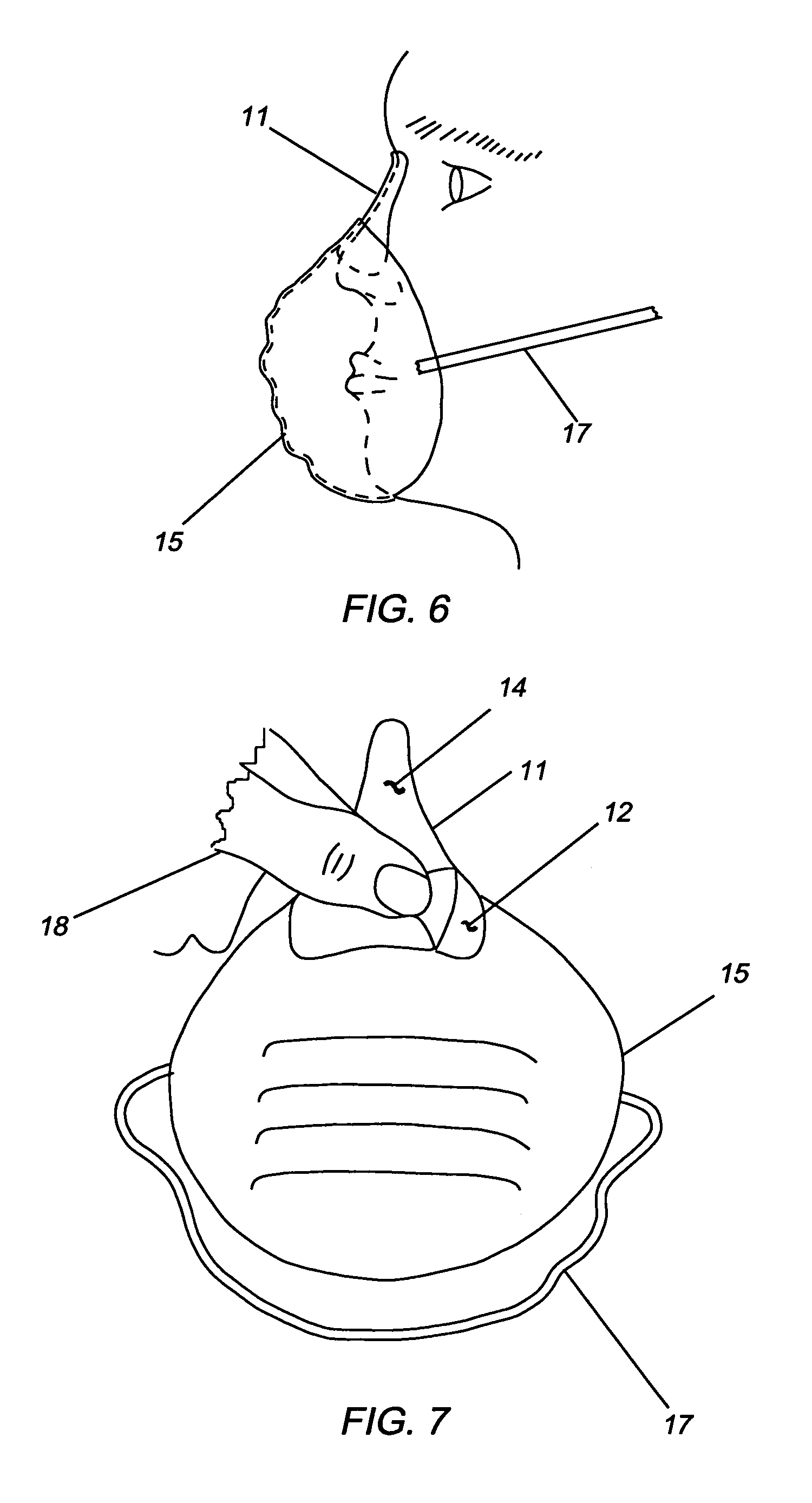Face mask and method
a face mask and mask technology, applied in the field of face masks and respirators, can solve the problems of not intended to open the nasal passage beyond the normal conditions, respiratory discomfort, etc., and achieve the effects of reducing fatigue of surgeons, improving comfort, and reducing fatigu
- Summary
- Abstract
- Description
- Claims
- Application Information
AI Technical Summary
Benefits of technology
Problems solved by technology
Method used
Image
Examples
Embodiment Construction
[0020]Referring now to the drawings wherein like numerals designate like and corresponding parts throughout the several views, in FIG. 1 a human face 10 is shown with designated features which are relevant to the present invention. A nose is covered with skin, which is movable in certain directions. The skin is movable along certain lines, referred to as Langers lines (not shown), which identify how the skin is movable. The lines along the nose run approximately transverse to the direction of the nose at approximately the center of the face. Thus, the skin of the nose is most easily moved from the nasal apex essentially vertically along the direction of the nose (this applies to the skin above the dorsal nose).
[0021]In FIG. 2 a noseform 11 is shown according to my U.S. Pat. No. 5,976,173 which is incorporated herein by reference. The noseform 11 is preferably made of a relatively thin, flexible elastic material. The noseform 11 has an adhesive coating 12 on an outer surface for adhe...
PUM
 Login to View More
Login to View More Abstract
Description
Claims
Application Information
 Login to View More
Login to View More - R&D
- Intellectual Property
- Life Sciences
- Materials
- Tech Scout
- Unparalleled Data Quality
- Higher Quality Content
- 60% Fewer Hallucinations
Browse by: Latest US Patents, China's latest patents, Technical Efficacy Thesaurus, Application Domain, Technology Topic, Popular Technical Reports.
© 2025 PatSnap. All rights reserved.Legal|Privacy policy|Modern Slavery Act Transparency Statement|Sitemap|About US| Contact US: help@patsnap.com



